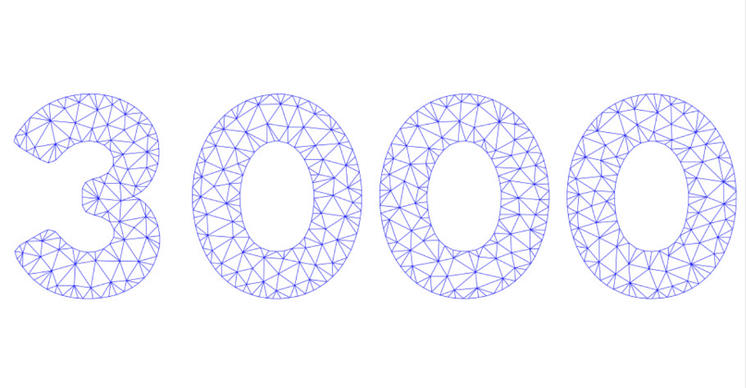Weekly Thoughts by Mirabaud Securities - 12 July 2019



Wall Street hit record highs after the head of the US central bank sent investors a strong signal it will press ahead with an interest-rate cut. Jerome Powell, the Federal Reserve’s chairman, reiterated its rate setters are ready to “act as appropriate” to revive growth despite the US-China trade truce and encouraging job figures. The S&P 500 index broke through the 3000-point milestone after he warned that the global slowdown and trade war uncertainty “continue to weigh on the US economic outlook”. Indeed, the Dow Jones and the Nasdaq hit new highs. In Europe, the week was kind of ugly for all the indices (the Italian MIB being the only survivor). The MSCI World Equity Index, which tracks shares in 47 countries, lost almost 0.2% on the fear of the G20 meeting. In Asia, MSCI’s broadest index of Asia-Pacific shares outside Japan lost 2%.

The Turkish lira suffered its worst day in months on Monday after President Recep Tayyip Erdogan sacked the country’s central bank governor over a dispute about interest rates. The currency, which had enjoyed a rally throughout May and June, was down more than 2 per cent against the dollar following the firing of Murat Cetinkaya. The country's debt also faced a significant bout of selling pressure. The yield on a 10-year dollar-denominated bond maturing in 2029 jumped 30 basis points to 7.28 per cent, marking the heaviest sell-off for the paper since late May. The dollar was weak against almost all the G10 currency members (the Australian dollar was the only looser). In emerging markets (still vs. dollars) the Brazilian real was the big winner of the past week with the South African rand and the Russian rubble. The biggest losers were the Turkish lira, the Mexican peso and the Chilean peso.

BASF shares fell almost 7% early on Tuesday after an overnight profit warning in which the German chemicals giant citing trade friction forecast a 30% fall in adjusted annual operating profit instead of a rise. BASF, which makes petrochemicals, coatings, automotive catalytic converters and foams, had assumed car sales would grow, even after 11 consecutive months of sales declines in China, the world’s largest car market. As a reminder, we consider the chemical sector as a leading indicator. The chemical industry has been found to consistently lead the U.S. economy's business cycle given its early position in the supply chain. The Chemical Activity Barometer (CAB) for example can be used to determine turning points and likely trends in the wider economy. Applying the CAB back to 1912, it has been shown to provide a lead of two to fourteen months, with an average lead of eight months at cycle peaks. The CAB slipped into contraction last April…

Italy’s demographic crisis, with a shrinking population and ageing workforce, is one reason for its chronically stagnant economy, and the situation is getting worse. Births dropped by some 18,000 to 440,000 last year, the lowest level since the unification of Italy in 1861, ISTAT said, while deaths totalled 633,000. The total population fell by 124,000 to 60.36 million, the fourth straight year of decline, meaning that since 2014 Italy has lost some 400,000 residents, the equivalent of its seventh-largest city, Bologna. The number of Italians moving abroad rose 1.9% year-on-year, in 2018, while new residents from abroad decreased by 3.2%. Foreigners accounted for 8.7% of the resident population at the end of last year, meaning Italians amounted to 55.1 million. That is down 677,000 compared with 2014, the equivalent of the population of Palermo, Italy’s fifth-largest city. A shrinking population means a smaller domestic market with fewer people buying goods and services.

The bank which, only a decade ago, dominated equity and fixed income, sales trading and investment banking across the globe, and was Europe's banking behemoth, is no more. On Sunday afternoon, in a widely telegraphed move, Deutsche Bank announced that it was exiting its equity sales and trading operation. It is resizing its once legendary Fixed Income and Rates operations, and reducing risk-weighted assets - currently allocated to these businesses - by 40%. It is slashing as many as 20’000 jobs, including many top officials, and creating a €74 billion "bad bank" as part of a reorganization which will cost up to €7.4 billion by the end of 2022. This will result in another massive Q2 loss of €2.8 billion as the bank hopes to slash costs by €17 billion in 2022, while ending dividends for 2019 and 2020 even as it hopes to achieve all this without new outside capital. As bad news never travels alone, according to the WSJ, the DoJ is investigating whether the German bank violated foreign corruption or anti-money-laundering laws in its work for the 1Malaysia Development Bhd. fund, or 1MDB, which included helping the fund raise $1.2 billion in 2014, as concerns about the fund’s management and financials had begun to circulate.
Several hot topics were discussed this week, including:
Who are the future techno stars? / BASF sends us a strong message / Old Italy / What if the surprise came from the ECB?
Please feel free to ask for more information if interested.
SWOT stands for Strengths, Weaknesses, Opportunities and Threats, the French equivalent of FFOM analysis (Forces, Faiblesses, Opportunités et Menaces). While SWOT analysis can be used to develop a company's marketing strategy and evaluate the success of a project (by studying data sets such as company's strengths and weaknesses, but also competition or potential markets), I decided several years ago to adapt it as a way to analyse financial markets. SWOT analysis allows a general development of markets by crossing two types of data: internal and external. The internal information taken into account will be the strengths and weaknesses of the market. The external data will focus on threats and opportunities in the vicinity. Finally, and most interestingly, there is a table that will evolve according to current events, which will allow it to reflect the underlying trend in the financial markets on a weekly basis.
Diese Veröffentlichung wurde von Mirabaud erstellt. Sie ist nicht zur Verteilung, Verbreitung, Veröffentlichung oder Nutzung in einer Gerichtsbarkeit bestimmt, in der eine solche Verteilung, Verbreitung, Veröffentlichung oder Nutzung untersagt wäre. Sie ist nicht für Personen oder Unternehmen bestimmt, an die die Übersendung dieser Veröffentlichung rechtswidrig wäre.
Mehr lesen
Author
Weiter zu
